One of the things I love about running a business in the maternity space is meeting other mums who are absolutely killing it with their own businesses. I have no doubt they're juggling a million things in the air at once and maybe they havent slept through the night in months now and are probably waiting for the day when they get to finish a whole cup of coffee while it's still hot but, it makes me feel seen as a working mum, running a business with my partner, raising two kids and keeping everyone in check (well, as much as I can).
Daisy is a Nutritionist, mum to Max and Co-Founder of The Whole Bowl Co. She also co-founded The Parenthood Society and, as if she didn't have enough on her plate, she wrote an article for us all about the nutritional considerations of breastfeeding. Breastmilk is already pretty magical, but it's so important to remember to keep yourself nourished and healthy as you embark on your breastfeeding journey for a tonne of reasons Daisy highlights below.
Keep reading, this one's a goodie.
Leish x
As new mothers, we spend a lot of time considering, preparing, planning and perhaps
worrying, about how to keep our babies well-fed and nourished. As a qualified
nutritionist and the co-owner of a postpartum meal delivery service, one of my favourite quotes is “you can’t pour from an empty cup”. This translates to the importance of keeping the mother well fed and nourished too so that she can optimise her chances of avoiding nutrient depletion herself whilst producing breast milk to feed her baby.
Breastfeeding or not, the postpartum mother benefits from a nutrient dense whole food
diet to support her healing, recovery and replenishment.
Highlighted below are some nutrients of focus to support a new mother and her baby on their breastfeeding journey.
Nutrients That Support Breastfeeding
Breastfeeding mothers have unique and increased nutritional needs to support both
lactation and their own health and well-being. Meeting these needs helps to ensure both mother and baby receive essential nutrients. Below are some nutrients to consider and the food sources to include.
Protein
Protein is crucial for milk production. It is also required for maintaining maternal muscle
mass, sustaining energy levels, supporting the immune system and tissue healing and
repair.
Food sources: Red meat, chicken, fish, tofu, edamame, tempeh, lentils, chickpeas, beans, wholegrains, full fat dairy, nuts and seeds.
Calcium
Breastfeeding mothers provide calcium to their baby through their milk. If maternal
dietary intake is inadequate, calcium may be mobilised from the mother’s bones.
Food sources: Full fat dairy products (milk, cheese, yoghurt), fish with small bones (sardines, salmon), fortified plant-based milks, calcium set tofu, leafy greens (kale, bok choy), almonds and sesame seeds (tahini).
Omega-3 Fatty Acids (DHA)
DHA supports infant brain and eye development. It also benefits maternal mental
health, supports the immune system and reduces inflammation.
Food sources: Cold water fatty fish (salmon, sardines, mackerel), ground flaxseeds, chia seeds, walnuts and eggs. A high quality fish oil or (vegan) algae oil supplement can also be a great addition.
Iron
Iron requirements are lower during breastfeeding than pregnancy, but are still essential
to replenish maternal stores and support energy levels. Iron also supports the immune
system and thyroid function.
Food sources: Red meat, organ meats, chicken thigh, legumes (chickpeas, lentils, beans, peas), nuts (cashews), seeds (pumpkin seeds), dried apricots. Pair iron rich foods with vitamin C-rich foods (like citrus, tomato, capsicum) for increased iron absorption.
Vitamin B12
B12 is essential for the baby’s neurological (brain and nervous system) development.
Food sources: Animal products (meat, dairy, eggs), fortified plant-based milks,
and nutritional yeast.
B12 levels should be checked and potentially supplemented for vegan or vegetarian mothers.
Vitamin D
Necessary for bone health and immune function.
Food sources: Fatty fish (salmon, mackerel, sardines), fortified dairy or
plant-based milk, egg yolks, and safe sunlight exposure.
As prolonged sun
exposure is not recommended especially for new born babies, supplements may
be recommended. The World Health Organisation recommends exclusively
breastfed babies should be supplemented with 400 IU per day.
Iodine
Essential for thyroid function and infant brain development.
Food sources: Iodised salt, seafood, seaweed, dairy, and eggs.
Other considerations
- Aim for 3 litres of filtered water per day. Herbal teas, broths, coconut water, juicy
fruit and vegetables also contribute to hydration. - Limit caffeine and alcohol which can contribute to nutrient depletion and
dehydration. - In general, approximately 500 additional calories per day is required when
breastfeeding. Organising wholesome meals and snacks for the fridge, freezer
and pantry is key.
A well-balanced, nutrient-dense diet supports lactation and infant development. Consult your trusted and qualified health professional for support and guidance.
Written By
Daisy Manson
Max’s Mama
BHSc + Nutrition
Co-founder of The Whole Bowl Co.
Daisy and the team have hooked up our Bubka Mums with a code if you'd like to try out their meal delivery service. This kind of thing is incredible at any stage of postpartum but especially at the very start for a new mum in the trenches- the perfect gift, if you ask me.
Use Bubka20 for $20 orders over $150

